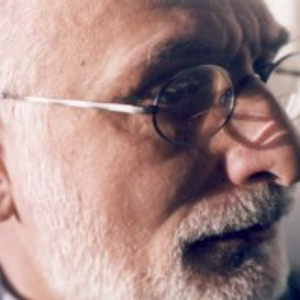
| Trackimage | Playbut | Trackname | Playbut | Trackname |
|---|---|---|---|---|
| 84753911 | Play | Expulsion | 00:00 Tools | |
| 84753912 | Play | Exterieur | 00:00 Tools | |
| 84753913 | Play | Exterieur (1967; Institute Of Sonology) | 00:00 Tools | |
| 84753914 | Play | Exterieur - 1967; Institute of Sonology | 00:00 Tools | |
| 84753915 | Play | Exterieur (1967) | 00:00 Tools | |
| 84753916 | Play | Solo Identity I | 00:00 Tools | |
| 84753917 | Play | Exterieur (1967: Institute of Sonology) | 00:00 Tools | |
| 84753918 | Play | D3 - Expulsion | 00:00 Tools | |
| 84753919 | Play | No time-cycle (1972-1974): Solo Identity I | 00:00 Tools | |
| 88633398 | Play | Études à la mémoire de Claude Debussy, Pt. 2 (1996) | 00:00 Tools |

-
- 1,478
- plays
-
- 495
- listners
-
- 1478
- top track count
Jos Kunst was born in 1936 in Roermond, The Netherlands, and began his music studies, after completion of his study of French Language and Literature at the State University of Groningen, when he was 27 years of age, first with Joep Straesser (1963-1966) and then with Ton de Leeuw. He was awarded the Encouragement Prize for his piece Insecten for 13 strings at the 1967 International Gaudeamus Competion. At the 1969 Gaudeamus Competion he was awarded the First Prize for his orchestral work Arboreal. He graduated from the Amsterdam Conservatory in 1970 and was awarded the Prize for Composition. Besides his activities as a composer he worked as a teacher of French literature, and at the conservatories of Zwolle and Amsterdam as a teacher of contemporary music and composition. In 1975 he decided, for reasons I am not able to express better than he himself did in his curriculum vitae, to stop composing; in 1976 he succeeded Rudolf Escher as lecturer in 20th century music at the department of Musicology of the State University of Utrecht. In 1978 he obtained his doctorate with the dissertation Making sense in music: an enquiry into the formal pragmatics of art. A few years later, in 1982, he published a collection of poems. His musicological theories are formulated in colloquial style in his book Filosofie van de muziekwetenschap [Philosophy of Musicology], published in 1988. He considered this book to be his farewell to academic musicology: in 1988 he seized the opportunity to retire early. From 1989 onward he took up composing again, but, contrary to before, he kept well away from organized musical life. He also started work on a second dissertation, about hermetic and neo-platonic texts from the beginning of the christian era, a project he kept working on until he died, but which he was unable to complete. A chapter of this work can be read here. On January 18, 1996, a few weeks after his sixtieth birthday, he died unexpectedly in his home in Utrecht as a result of a gastric bleeding, leaving everyone who knew him bemused and bereaved. For more info, go to: http://joskunst.net Read more on Last.fm. User-contributed text is available under the Creative Commons By-SA License; additional terms may apply.